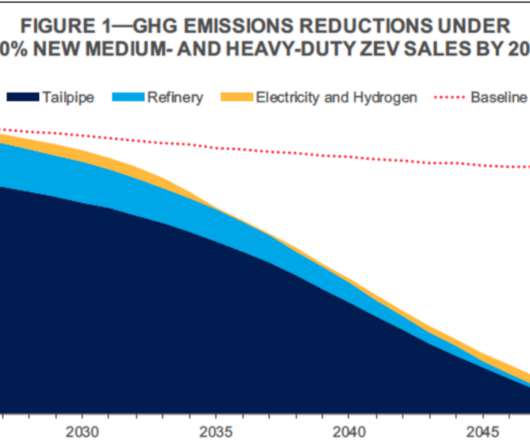Mn/DOT assessing potential for mileage-based user fee to replace fuel tax; Battelle conducting technology assessment
Green Car Congress
APRIL 21, 2011
Minnesota’s highway revenues are derived from three sources: the gas tax, vehicle registration fee or tabs and the motor vehicle sales tax. Other state DOTs also are researching alternative financing methods to supplement or replace a gas tax. —Cory Johnson, project manager.
















Let's personalize your content